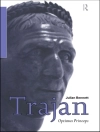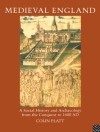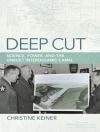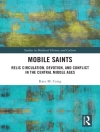The pursuit of collective happiness was considered a utopian ideal that structured many aspects of Soviet culture, a fact recognized by numerous scholars in various disciplines ranging from cultural and literary studies to sociology and political science. Several groundbreaking studies in the literary and cultural history of the former Soviet Union have changed our understanding of the Soviet past. However, none of these studies has paid attention to an important theme in the cultural history of Soviet society – the pursuit of happiness. Although specialists in Soviet culture repeatedly invoke various manifestations of happiness in works of literature and film in their research, it has yet to be investigated as the subject of a full-fledged independent study.
‘Petrified Utopia’ redresses this inexplicable omission. This collection of essays introduces the Western reader to the most representative ideas of happiness, and the common practices of its pursuit that shaped Soviet everyday life and cultural discourse from the early post-revolutionary years to the later period of Stalinist and post-Stalinist culture. The collection presents different manifestations of happiness in literature and visual culture – from children’s literature to the official and high literary cannon, from architecture to fine arts, from postcards to cookbooks, and from the culture of consumerism to product-paradise in Soviet posters. ‘Petrified Utopia’ features articles by the leading specialists in the study of Soviet culture from the UK, the US, Germany and Italy, and addresses the perplexing lack of scholarship on this important issue.
Inhaltsverzeichnis
Part One: Utopics: A Joyful Soviet Childhood: Happiness for Little Ones; Utopian Naturalism: The Epic Poem of Kolkhoz Happiness; Luxuriating in Lack; Plentitude and Consuming in Soviet Paintings and Posters, 1920-1953; Tasty and Healthy; Soviet Happiness in One Book; Part Two: Realities; ‘It’s Grand to Be an Orphan!’ Crafting Happy Citizens in Soviet Children’s Literature of the 1920s; Sew Yourself Soviet: The Pleasures of Textile in the Machine Age; Happy Housewarming: Moving Into Kruschev-Era Apartments; ‘When We Were Happy’: Remembering Soviet Holidays; Part Three: Locations; The ‘New Moscow’ and the New ‘Happiness’: Architecture as a Nodal Point in the Stalinist System of Value; Andrei Platonov’s Happy Moscow: Tolstoi, Stalin and the Soviet Self; ‘But Where Is Your Happiness, Alevtina Ivanovna?: New Debates About Happiness in the Soviet Films of 1956; Easy on the Heart, or ‘Strength Through Joy’
Über den Autor
Marina Balina is Isaac Funk Professor of Russian Studies at Illinois Wesleyan University.
Evgeny Dobrenko is Professor of Russian Studies at Sheffield University.












